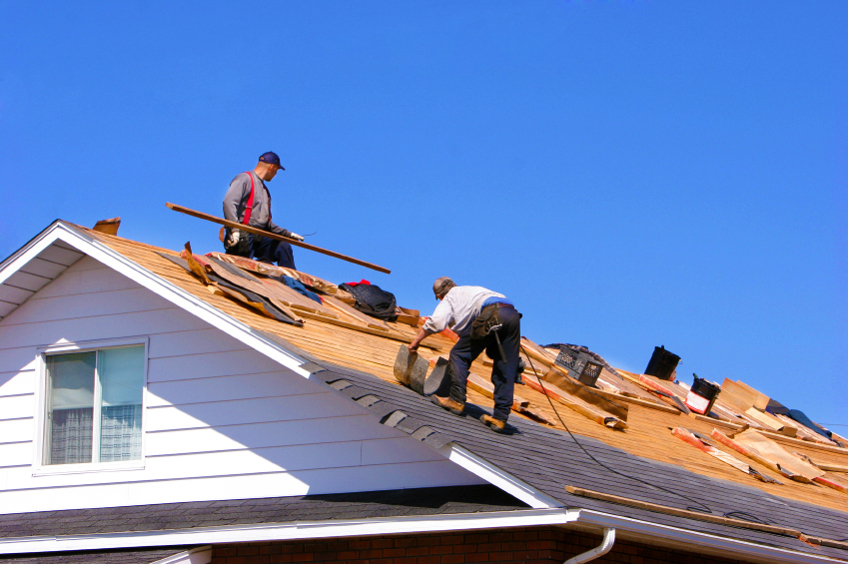All Categories
Featured
Table of Contents
- – Kinds Of Roofing Products Utilized
- – Typical Roofing Products Explained
- – Selecting the Right Product: What Matters?
- – Material Comparison at a Look
- – Necessary Security Procedures for Roofing Prof...
- – Defending against Falls and Slips
- – The Invisible Threats: Weather Condition and ...
- – Personal Experience in Practice
- – Quick Reference Table: Safety Equipment Must-...
- – Training and Certification: The Bedrock of Kno...
- – Core Components of Roof Training
- – Why Accreditation Matters Beyond Compliance
- – Specialist Tips for Aspiring Roofers
- – Essential Roof Strategies and Accuracy Tools
- – Strategies That Make a Difference
- – Specialist Insights in Action
Kinds Of Roofing Products Utilized
When you think of the roofing system over your head, have you ever stopped to wonder what stories the shingles or tiles could inform? Roof materials, chosen by competent roofing professionals, are far more than mere shelter components-- they paint a picture of environment, culture, and craftsmanship. From the rugged texture of asphalt to the streamlined shimmer of metal, each material carries its own tale.
Typical Roofing Products Explained
New Shingle Roof In Baltimore MDLocal Flat Roofers In Baltimore MD
Flat Roof Leak Repairin Baltimore MD
Residential Flat Roof Contractors In Baltimore MD
Flat Roof Repair Replacement In Baltimore MD
Not all roof products are created equivalent. Some whisper tales of durability, others boast eco-friendly virtues, while a couple of stand as monoliths to aesthetic appeal. Here's a quick rundown of the most widespread types:
- Asphalt Shingles: The workhorse of roof-- inexpensive, versatile, and widely used. They resemble the reliable boots of a roofing contractor, trusted in many climate condition.
- Metal Roof: Sleek, modern-day, and incredibly resilient. It's the armor that protects structures through decades of storms and sunlight.
- Clay and Concrete Tiles: Frequently found on Mediterranean-style homes, these tiles are like timeless sculptures-- heavy however captivating, with a life expectancy that matches a century.
- Wood Shingles and Shakes: For those who choose a rustic, natural look, wood roof includes warmth but needs more care and knowledge from roofers.
- Slate: The aristocrat of roof materials, slate's natural stone provides sophistication however needs knowledgeable hands to set up properly.
Selecting the Right Product: What Matters?
Is it purely about toughness, or does style tip the scales? In some cases, the choice seems like choosing a preferred kid-- each product provides distinct advantages. Roofing contractors frequently weigh factors such as:
- Climate Compatibility: Will the material stand up to rain, snow, or blazing sun?
- Setup Intricacy: Some products, like slate, demand craftsmanship developed over years.
- Environmental Effect: With increasing consciousness, options like recycled metal or sustainably sourced wood gain appeal.
- Aesthetic Harmony: The roofing material must sing in tune with the home's architecture.
Material Comparison at a Look
| Product | Toughness | Cost Range | Installation Problem | Ecological Effect |
|---|---|---|---|---|
| Asphalt Shingles | 15-30 years | Low | Easy | Moderate |
| Metal Roof | 40-70 years | Medium | Moderate | High (recyclable) |
| Clay Tiles | 50-100 years | High | Tough | Low |
| Wood Shingles | 20-40 years | Medium | Moderate | Moderate |
| Slate | 75-200 years | High | Very Difficult | Low |
In the end, the choice of roofing material is a dance in between functionality and passion. The roofing professionals - Commercial Flat Roof Contractors in Baltimore MD who lay these materials down bring technical skill and an artist's eye, crafting not just protection however a lasting legacy for the home beneath
Necessary Security Procedures for Roofing Professionals
Ever felt the vertigo sneaking in as you climb up that ladder? That's the silent suggestion that roof security isn't just a list-- it's survival. The roofing is a place where one bad move can turn a regular task into a catastrophe. From the moment you step onto a shingle, the risk of falling looms big, however there are ways to tame that danger.
Defending against Falls and Slips

Ask any experienced roofer: the most regular risk is falling-- either from edges or through weak points. The instinct to rush can be a silent enemy. Here's a professional rundown to keep you stable:
- Use utilizes with correct anchor points ranked for dynamic loads.
- Check every ladder for stability and safe footing before ascending.
- Wear shoes with non-slip soles designed specifically for roof surface areas.
- Stay alert for wet or icy patches that can turn a strong enter a slip.
The Invisible Threats: Weather Condition and Material Handling
Have you ever pondered how rapidly a sunny day can end up being a roof hazard zone? Strong winds can turn loose tools into hazardous projectiles. Managing roof materials like shingles or metal sheets requires not simply muscle but mindfulness. Keep these pointers close:
- Anchor tools and products when not in usage to avoid them from moving off.
- Set up work throughout calm weather condition windows; wind gusts above 20 miles per hour are a warning.
- Wear gloves designed to enhance grip and safeguard against sharp edges.
- Check roof decking stability before stepping to avoid unforeseen breaks.
Personal Experience in Practice
On one vigorous autumn early morning, a colleague underestimated a vulnerable point concealed underneath old shingles. The resulting fall was a stark lesson: never trust what looks solid without an extensive check. Ever since, a "tap test" with the hammer before positioning weight has actually been my routine, revealing hidden rot or damage undetectable to the eye.
Quick Reference Table: Safety Equipment Must-Haves
| Equipment | Function | Expert Pointer |
|---|---|---|
| Full-body Harness | Fall arrest and prevention | Double-check buckles and webbing for wear before each use |
| Roofing Boots | Slip resistance and foot security | Select boots with aggressive tread and water resistance |
| Tough Hat | Head effect security | Change after any substantial effect, even if no damage shows up |
| Gloves | Grip and hand protection | Select gloves with strengthened palms and flexibility |
- Review of CRG Roofing and Siding in Baltimore MD by Chantel: Appreciate the company’s honesty. My issue was not from the roof but will call them in the future if roof repair is needed.
- Review of CRG Roofing and Siding in Baltimore MD by Bo Ling: I have got severe wind damage to my roof earlier this year; one of my neighbors recommended Chesapeake Remodeling Group to me. The inspection team from CRG came and did the damage assessment quickly. Mr. Anton Washington helped me to file the claim to insurance and explained the process clearly to me. Anton made the claim process painless for me. The crew from CRG was so professional and super friendly too! They showed up at 7:30 AM; at 3:30 PM we have got a beautiful architecture shingle roof on our house. They had put covers around my house to protect the shrubs before the work, and cleanup small debris afterwards. I am very happy and grateful to Chesapeake Remodeling Group for their superb services! Highly recommended!
- Review of CRG Roofing and Siding in Baltimore MD by Heather Faulkner
- Review of CRG Roofing and Siding in Baltimore MD by Jisun Shin "
- Review of CRG Roofing and Siding in Baltimore MD by Lorraine Philyaw: A.Washington...my representative...was very professional and knowledgeable when contacting my insurance company about my roof repair. He was able to help me hash it out with my insurance company and receive money to have my roof repaired. Their customer service is awesome! "
Training and Certification: The Bedrock of Knowledgeable Roofing Contractors
Ever question why some roofers appear to levitate, nailing shingles with accuracy while others fail? The secret lies in extensive training and targeted accreditation. Hands-on experience alone won't suffice-- training programs are crafted to simulate the unpredictable nature of roofing work, from sudden weather condition modifications to vulnerable substrates.
Consider this: a roofing contractor once shared how an unanticipated gust almost turned a day's work into a disaster. Years of training started-- proper anchoring techniques, quick decision-making-- avoiding injury and safeguarding the roofing system's stability. That's the genuine worth of accreditation; it's not just paper, it's a survival toolkit.
Core Components of Roof Training

- Safety protocols customized to local regulations and real-world scenarios
- Product science-- comprehending how various roof materials react to components
- Setup methods that vary by roof type, pitch, and design complexity
- Analytical drills involving water intrusion and structural stress
- Use of sophisticated tools and digital measurement systems
Why Accreditation Matters Beyond Compliance
Isn't it curious how an official certificate can enhance a roofing professional's reliability, yet its real power is typically neglected? Certification signals proficiency, however it also requires continuous learning. Lots of programs require routine renewals, making sure roofing contractors remain present with developing industry standards and innovative products.
Specialist Tips for Aspiring Roofers
- Seek training that includes both classroom theory and extensive fieldwork
- Practice utilizing different roofing materials-- what deal with asphalt shingles will not on metal or slate
- Prioritize learning fall defense systems; they're lifesavers more than simply guidelines
- Network with certified roofers-- mentorship speeds up skill acquisition
- Frequently evaluation regional building regulations; they're the silent framework directing your every nail
Would you trust your home's shelter to somebody who skips this important action? The roof isn't just a cover; it's a complicated system demanding respect, ability, and above all, correct training and accreditation.
Essential Roof Strategies and Accuracy Tools
Baltimore, Maryland, located at approximately 39.2904° N latitude and 76.6122° W longitude, is an autonomous city and the most populous city in the state of Maryland. With a population of around 585,000 as of the 2020 census, Baltimore is a major urban center on the U.S. East Coast, located about 40 miles northeast of Washington, D.C. The city covers an area of approximately 92 square miles. Baltimore is famous for its rich history, cultural multiculturalism, and strategic location along the Patapsco River, which runs into the Chesapeake Bay. The city's economy has traditionally focused on its port, the Port of Baltimore, one of the biggest in the United States, managing over 40 million tons of cargo annually. Baltimore is also a hub for healthcare and education, home to institutions like Johns Hopkins University and Johns Hopkins Hospital, both world-renowned for medical research and treatment. Key points of interest include the Inner Harbor, a lively waterfront area showcasing the National Aquarium, Maryland Science Center, and historic ships such as the USS Constellation. The city features numerous neighborhoods, including Fells Point, known for its cobblestone streets and nightlife; Mount Vernon, with cultural institutions like the Walters Art Museum and the Peabody Institute; and Federal Hill, providing panoramic views of the skyline. Demographically, Baltimore is diverse, with approximately 62% African American, 30% White, and the remainder made up of Hispanic, Asian, and other groups. The median household income is roughly $50,000, with ongoing efforts to reduce economic disparities and urban revitalization. Baltimore also holds significant annual events such as Artscape, the largest free arts festival in the country, and has a strong sports culture with teams like the Baltimore Ravens (NFL) and Baltimore Orioles (MLB). The city's infrastructure includes a network of highways, the Baltimore-Washington International Thurgood Marshall Airport (BWI), and public transit options like the Light RailLink and Metro SubwayLink.
Ever questioned why some roofings endure the wrath of storms while others falter? The answer lies deep in the mastery of roofing strategies and the tools wielded by proficient roofing professionals. Take, for example, the art of shingle alignment. It's not just about laying shingles in neat rows; it has to do with comprehending the subtle play of wind, rain, and sun exposure. Misaligned shingles can invite leakages, which often creep in undetected till the damage is irreversible.
When it pertains to tools, a roofer's toolbox is a treasure chest of precision instruments. The simple roof hammer isn't just for pounding nails-- it's developed with a magnetic nail holder that accelerates deal with high slopes, keeping safety and performance in consistency. And then there's the chalk line tool, an easy string that marks completely straight lines. Without it, even the most experienced roofing professional may struggle to maintain balance throughout a vast surface area.
Local Flat Roofers In Baltimore MDFlat Roof Repair Replacement In Baltimore MD
Flat Roof Companies In Baltimore MD
Best Flat Roofers In Baltimore MD
Flat Roofing Solutions In Baltimore MD
Strategies That Make a Difference
- Step flashing: Vital for sealing joints between roof and vertical surface areas like chimneys or walls, preventing water ingress in those susceptible areas.
- Ice and water guard installation: Applied below shingles at eaves and valleys, this membrane defend against ice dams and wind-driven rain.
- Proper nailing patterns: Not all nails are developed equal, and neither are their positionings. Too few nails, or badly placed, can trigger shingles to loosen prematurely.
Specialist Insights in Action

One remarkable project included a steep-pitched roof where traditional ladder access was impossible. Using a roofing harness system and specialized roof jacks, the group worked safely on near-vertical surface areas, a testament to how security gear transforms intimidating jobs into manageable ones. Have you ever stopped briefly to think about just how much the ideal tool can improve both quality and spirits on a task site?
| Tool | Function | Pro Pointer |
|---|---|---|
| Roof Hatchet | Driving nails, cutting shingles | Utilize the hammer side to tap gently to prevent cracking shingles |
| Utility Knife | Trimming roofing materials | Change blades regularly to make sure clean cuts |
| Air Nailer | Rapid and constant nailing | Check air pressure routinely to avoid over-penetration |
Table of Contents
- – Kinds Of Roofing Products Utilized
- – Typical Roofing Products Explained
- – Selecting the Right Product: What Matters?
- – Material Comparison at a Look
- – Necessary Security Procedures for Roofing Prof...
- – Defending against Falls and Slips
- – The Invisible Threats: Weather Condition and ...
- – Personal Experience in Practice
- – Quick Reference Table: Safety Equipment Must-...
- – Training and Certification: The Bedrock of Kno...
- – Core Components of Roof Training
- – Why Accreditation Matters Beyond Compliance
- – Specialist Tips for Aspiring Roofers
- – Essential Roof Strategies and Accuracy Tools
- – Strategies That Make a Difference
- – Specialist Insights in Action
Latest Posts
Residential Flat Roof Replacement in Lothian MD: Top Roof Specialists Deliver Quality Workmanship And Long Lasting Solutions For Every Single Home
Flat Roof Baltimore in Nottingham MD: We Concentrate On Setting Up New Low-Slope Roof Systems For Homes And Organizations
Flat Roof Replacement Contractors in Parkton MD: Experienced Roofing Professionals Supply Resilient And Effective Roofing System Installations And Repair Work
More
Latest Posts
Flat Roof Baltimore in Nottingham MD: We Concentrate On Setting Up New Low-Slope Roof Systems For Homes And Organizations